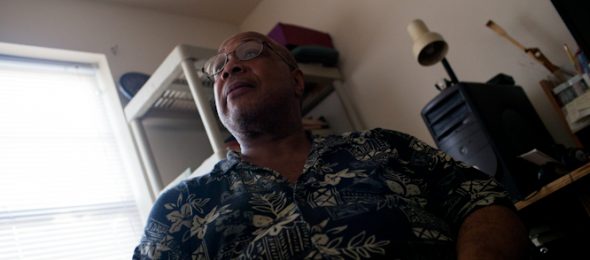
By Bassam Tariq
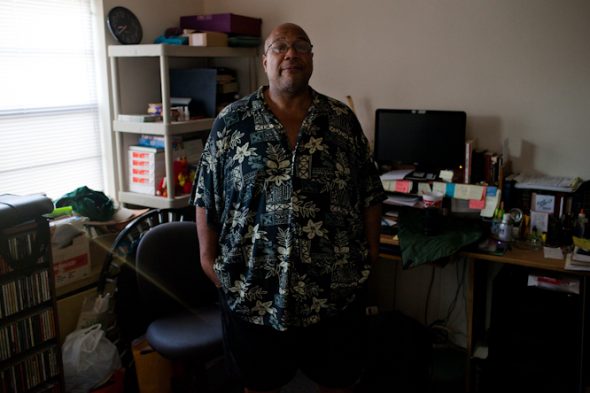
We met a gay Imam yesterday in Washington DC. Before we go any further I thought I’d take a moment and do a Frequently Asked Questions section so we can get passed the obvious questions and move to the story.
FAQS
WHAT’S THE STORY?
He goes by Imam Daiyee Abdullah and lives in Washington D.C. He is known as the gay Imam because many queer Muslims come to him for advice on how to live a balanced and spiritual life. He is a large man that towered over both Aman and I. He also has a mean handshake.
WHERE’S THE MOSQUE?
For now, it is a makeshift mosque. They meet at a public library in Washington DC for Friday prayers.
HOW DID HE KNOW HE WAS GAY?
Imam Daiyee grew up in a very loving family and always knew that he was gay. He finally came out to his parents when he left for college at the age of 15. At the time, his name was Sidney and he wasn’t Muslim. His family had always instilled in him the importance of believing in God. They themselves are Southern Baptists, but accepted their son when he came out.
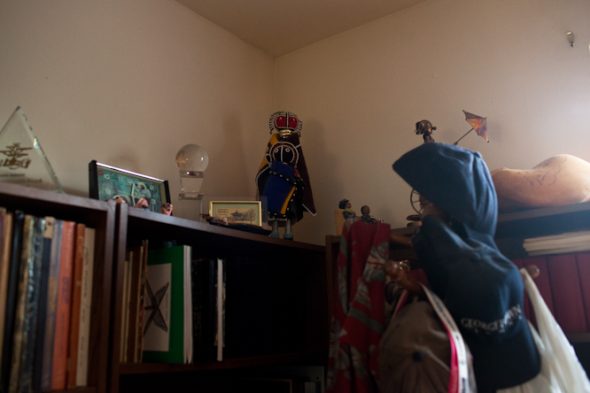
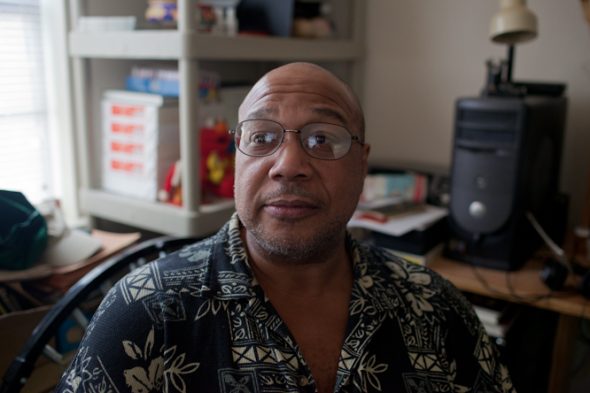
HOW DID HE FIND ISLAM?
Oddly enough, in China. He was studying the Chinese language at Beijing University in the early 80’s when he befriend many Uyghur Muslims. He was very moved by the faith. The first Quran he ever read was in Chinese and Arabic. He had been exposed to Islam before with the small Wahhabi and Nation of Islam communities he ran into during college. At that time, the religion didn’t make much sense to him. Ironically, it was when he read the Quran in Chinese that it all came together.
WAIT, WAS HE STILL GAY WHEN HE EMBRACED ISLAM?
Yes. Imam Daiyee has always been a spiritual man and believed in the importance of having faith. What attracted him into Islam was prayer. “With Islam, it’s totally different. In sujood [prostration], I felt like I could release all my anxieties to Allah.” He also feels that the faith gives him a greater inner peace that no other religion has given him.
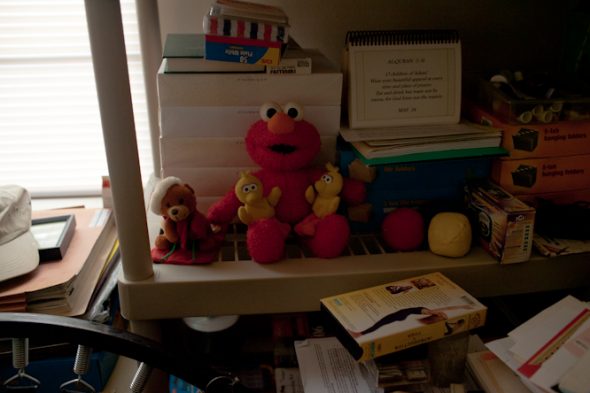
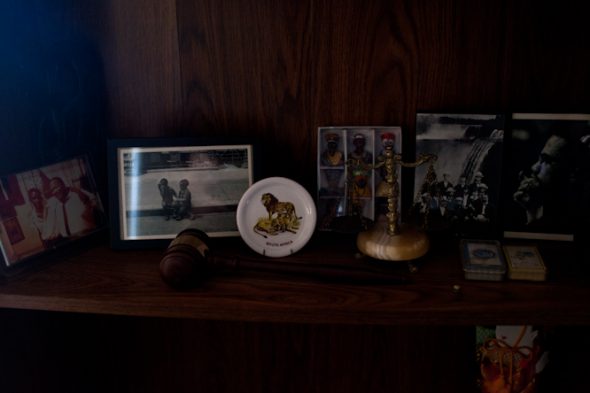
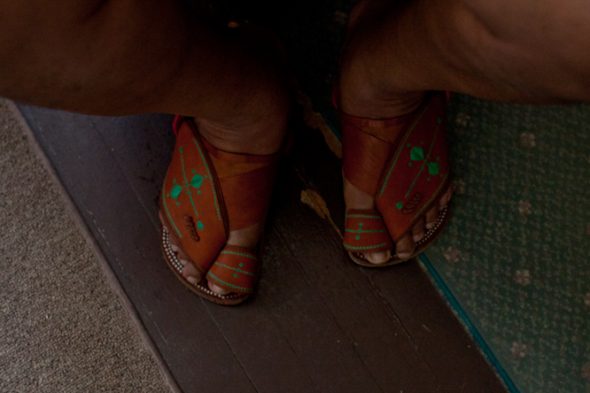
HOW DID HE RECONCILE ISLAM’S VIEW ON HOMOSEXUALITY AND HIS OWN PRACTICE?
This is where it gets interesting. Imam Daiyee Abdullah was introduced to Islam by the Uyghurs. Apparently, they have been Muslim for over 1300 years because of their tradings with the Arabs. In Imam Daiyee’s eyes they have a wider and more nuanced understanding of Islam and one that is closer to the Prophet’s time. They were very accepting of his homosexuality and embraced him wholeheartedly.
From the moment he was Muslim, Imam Daiyee never saw a conflict between with Islam and homosexuality.
OKAY GOT IT – WHY DOES 30 MOSQUES CARE?
Great question. We are looking to share compelling and relevant stories about Muslims in America. We have celebrated those in the mainstream Muslim community and have also highlighted communities that would be considered on “the fringe.” It was important for us to meet someone from the Queer Muslim community because they exist and their story is an important one. Do I necessarily have to agree with their beliefs and values? No, but I should respect it.
There are countless stories that we have covered this year on communities or people we wouldn’t see eye-to-eye with and that’s what this year’s challenge has been for us. It is for us to step into these difficult conversations and to try to empathize and understand where the other is coming from. That’s the only way we can celebrate the human experience and climb out of our own ignorance.
ARE THERE MANY QUEER MUSLIMS IN AMERICA?
There is no real way to know how many Muslims in the US are queer, but Imam Daiyee estimates about 6%. In his own informal observations, he says that they tend to be well-educated, in their mid to late twenties. They come from all over the world, there is no one real ethnic majority in the congregation.
WHY IS THIS RELEVANT?
We are afraid as a community to touch this subject because we feel the religion doesn’t accept it as a lifestyle. Many muslims right now see homosexuality as a phenomena that doesn’t effect Muslims. We take the Ahmedenejad “there are no homosexuals in Iran.” But what will we do if one of our siblings comes out? If our child tells us they are gay? Or a close friend? Will you still love them? Will you shun them? Beat them?
——
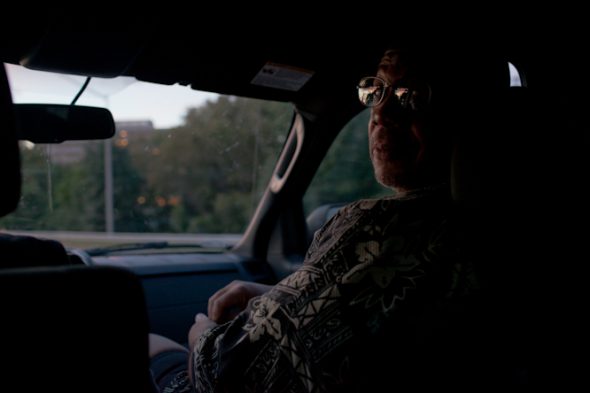
THE STORY
Imam Daiyee has had a few partners in his life. His first long-term committed relationship was when he moved to San Francisco. He is now on his third relationship and for the first time, the person he is seeing is Muslim.
“Every man I’ve dealt with has had children.” He says with a belly laugh.
Many of Imam Diayee’s relationships have been with men that used to be married and have children. His last partner and him were together for 11 years and after they broke up, his partner remarried.
“He remarried?” I ask, puzzled. “to a woman?”
“Yes.” Imam Daiyee replies. “A little while into our relationship he told me that he missed being with a women. I told him ‘that’s fine, but you cant be with the both of us.”
His ex-partner, we’ll call him Ted, wanted both. Imam Daiyee felt that wouldn’t be right. He believed in a committed relationship and believed that there needs to be a standard and a limit to how they have their relationship. Ted didn’t get it.
This entire conversation happens as Aman and I are dropping off Imam Daiyee at his home in DC. We are on our way from having dinner together. This conversation makes me uneasy. It is odd for me to see an Imam, or some kind of Muslim leader talk about his gay boyfriends. It’s hard to accept that Imam Daiyee and I see the world differently because of how our sexual orientation molds our perspective.
It has to be said, there are limits to my understanding of the queer experience because I have never been in a romantic relationship with another man nor have I yearned for that. I am part of the heterosexual norm. But now, Imam Daiyee and I have come together because of our belief in the same God and our upholding of a high moral and ethical standard.
“Is it hard to be in a relationship with someone that’s not Muslim?” I ask since Ted was a Christian.
“Yes, the value systems are different. I’m always explaining myself.”
After the relationship with Ted, Imam Daiyee was in a hiatus for about three years. He is now dating again and, for the first time, he’s a Muslim.
“He also has kids, he’s divorced.” Imam Daiyee says, “I guess I’m here to soften’em up.”
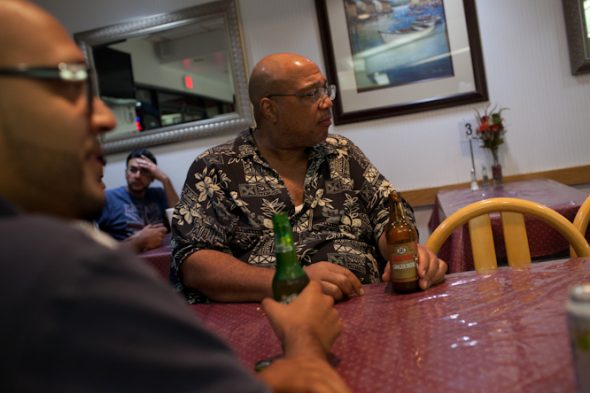
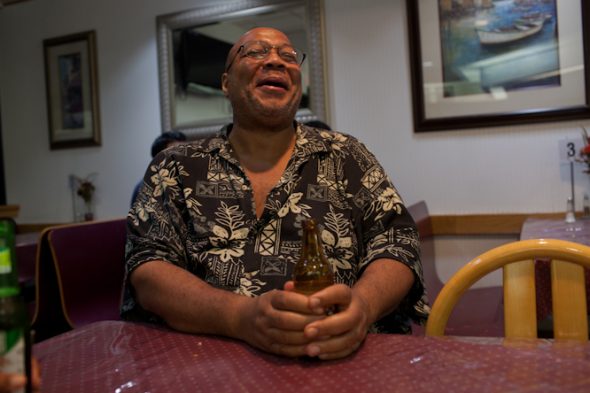
Imam Daiyee laughs again and we all join in. He is a man of great humor and ease. The questions I’ve asked him throughout the day have been very pointed and difficult, but he answers them with grace and respect. He is a patient man that is in no hurry. In answering questions, he takes his time and gives his answers with care.
“We are in a mutah [temporary marriage] relationship right now.” Imam Daiyee says.
He is excited about the future with his Muslim boyfriend. For the first time Imam Daiyee has someone he can fast with, someone he can pray with and someone that he sees eye-to-eye with in terms of morality and standards of what to expect in a relationship.
For his Indian Muslim partner, let’s call him Mubashir, this is his first relationship. Mubashir is also based in DC and had some difficulties in the beginning.
“He started acting really feminine and I told him that I don’t want that. If I want a woman, I could get one.”
Imam Daiyee dated a woman in high school and it didn’t seem to do anything for him. He calls it the time he was in “follow-everyone-else mode.”
Affected behavior is a concern that Imam Daiyee brings up. Essentially, when people come out they take on an exacerbated lisp or laugh.
“Most people don’t talk like that. It’s just all this pent up sexual frustration, that when they finally come out – they get a little wild.”
Every relationship has its ups and downs and Imam Daiyee understands that.
“It’s important to understand that each relationship builds on the other.” Imam Daiyee says.
The happiness in Imam Daiyee’s voice as he spoke about his boyfriend, reminds me of my wife. There is only so much anyone else will understand on what they mean to you.
Imam Daiyee pauses and then smiles.
“If things keep up. We’ll eventually get a nikkah [Islamic marriage].”
We may love differently, but we see it the same.